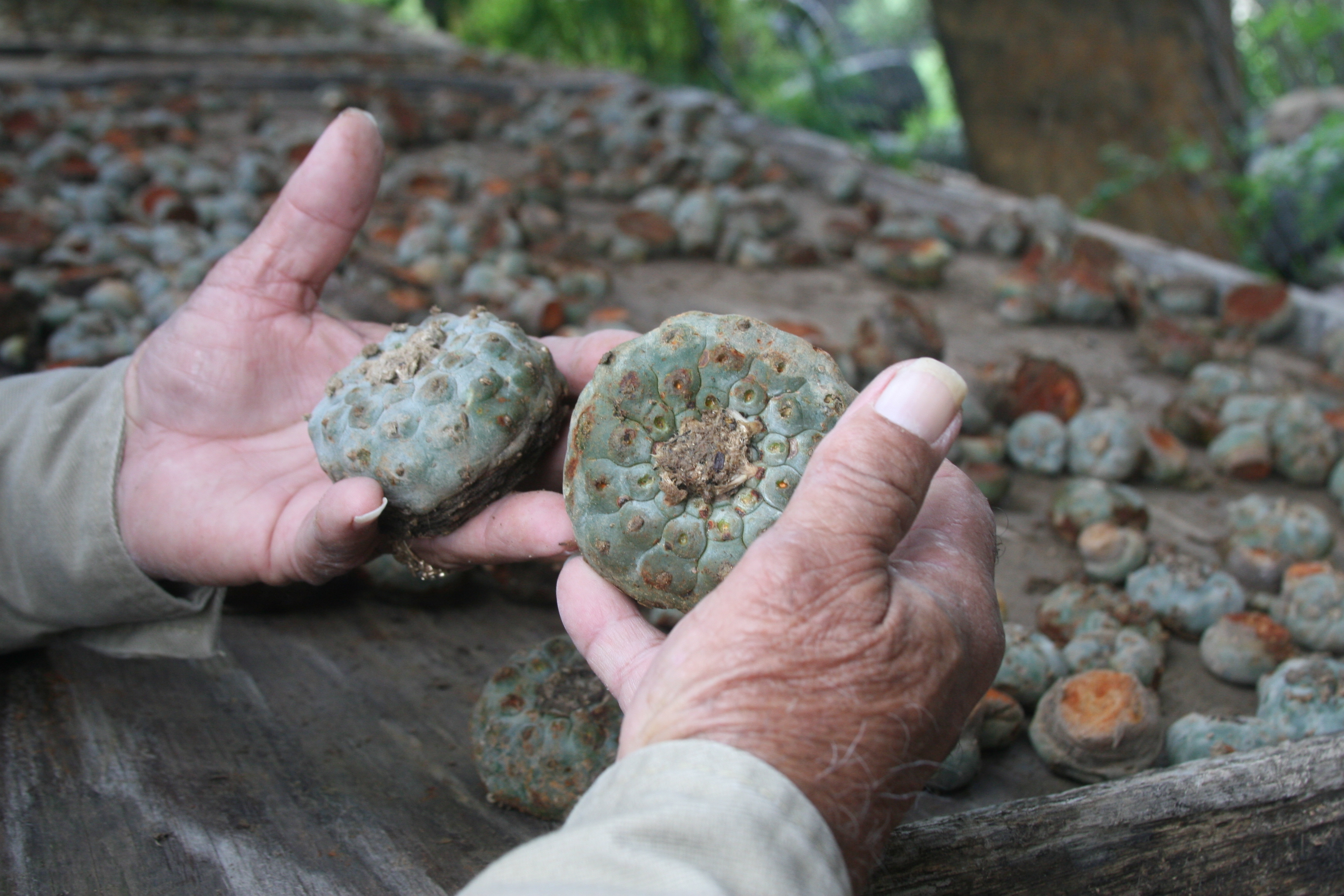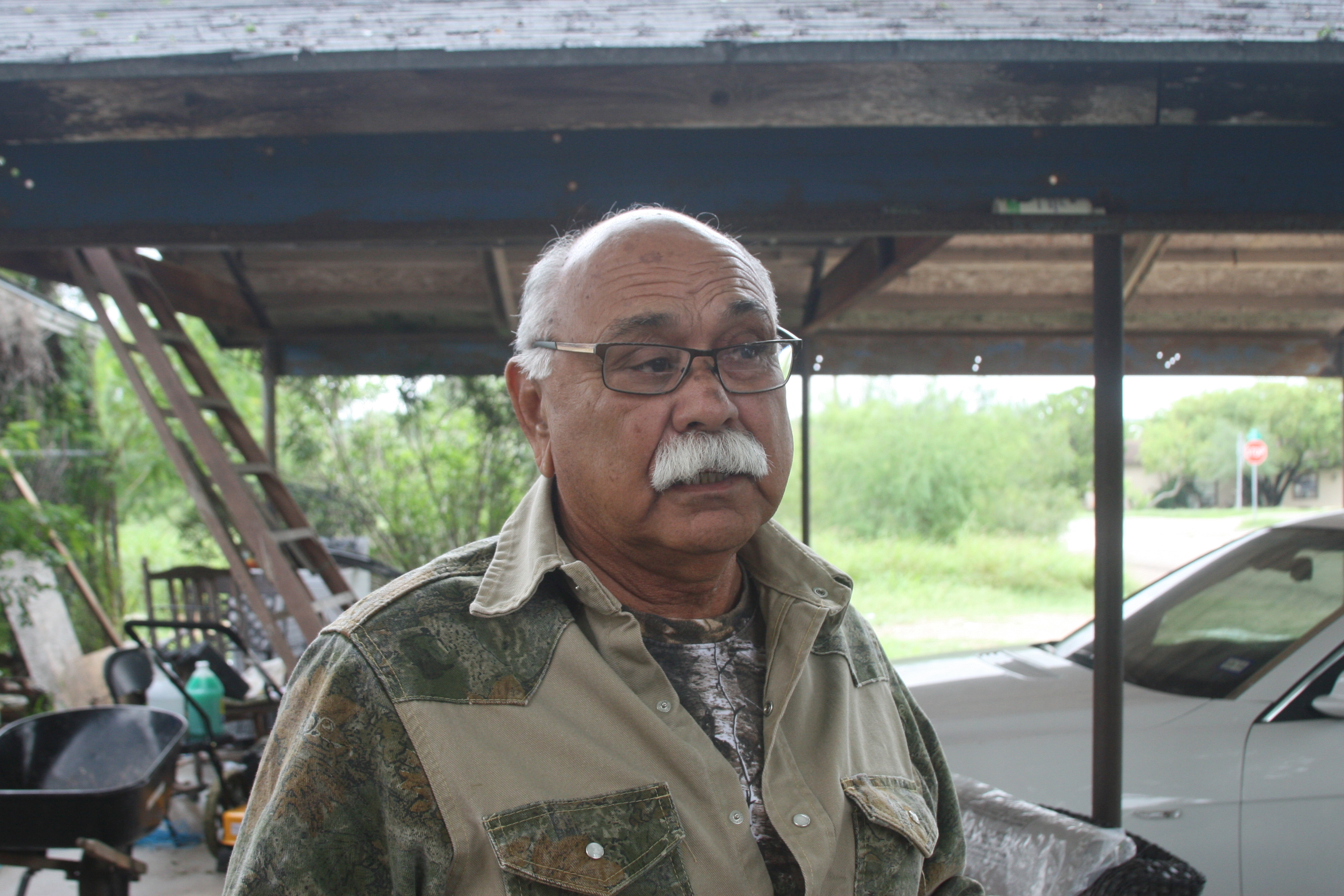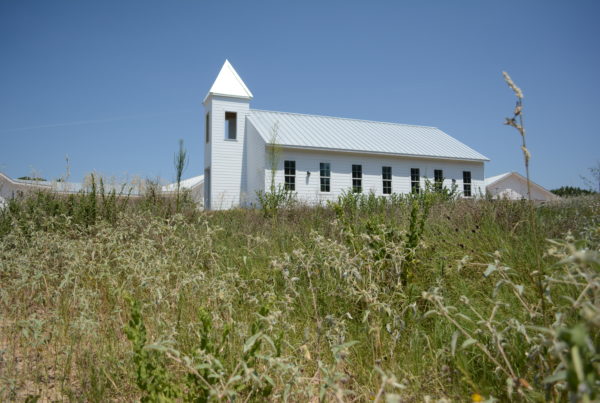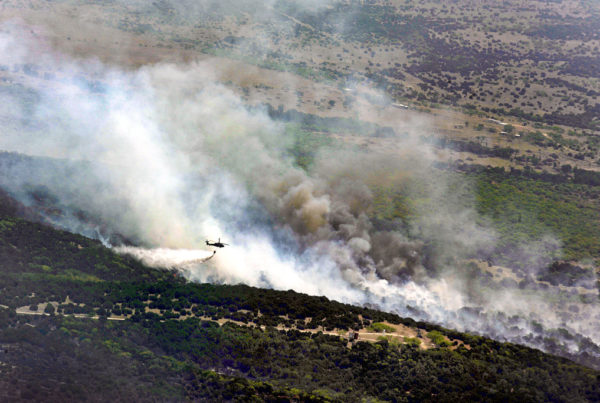In ecological terms, South Texas is known as brush country – it’s home to lots of thorny shrubs, trees and palms. Its humid climate makes it similar to parts of Northern Mexico, and it’s only in these two places where you can find one member of the cacti family which has been controversial, to say the least: peyote – genus Lophophora – is a small cactus native to the Rio Grande Valley. It contains a psychoactive substance known as mescaline, and it’s been used as a religious sacrament in ceremonies by native cultures for centuries. But selling it is barred in every state except for the one where it grows: Texas.
Peyote sellers in Texas are required to first register with the U.S. Drug Enforcement Administration, and then with the Texas Department of Public Safety. They must report how much peyote they harvest from the wild, and renew their license every year. Currently, there are only four licensed peyote distributors in Texas, and one of them is Salvador Johnson.
“I’ll be 72 in, probably in about three weeks. But I still harvest peyote, so still going strong, still feel young,” Johnson says.
Johnson lives in Mirando City; it’s a town of less than 200 people and is about 35 miles east of Laredo. He’s lived there pretty much all his life. After graduating from high school in 1966, Johnson joined the Air Force and was deployed to Vietnam. When he came back home, he followed in his father’s footsteps.















